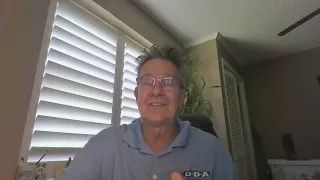Uptick in retirement withdrawals could signal opportunity for reverse lenders
More Americans are turning to their retirement accounts in order to make ends meet, according to a report from investment company Vanguard — a sign that continuing inflationary pressures are impacting retirement plans in 2022.
The data indicates that Americans are struggling due to higher prices on essentials like food and gasoline, causing more damage to retirement accounts — which were already hit hard by both inflation and the COVID-19 p
“Investors are feeling more pessimistic about the short-term outlook for financial markets and more of them are having to tap their retirement savings for cash,” according to Vanguard researchers operating off of October 2022 data. “Our retirement research team’s analysis of retirement plan withdrawal behavior shows that more investors are turning to their retirement savings for cash in 2022.”
Despite the impact to retirement accounts, the rise in hardship withdrawals is sharp enough to warrant special consideration, according to Vanguard.
“Most concerning is the rise in hardship withdrawals, which have reached an all-time high,” the report states. “They are permitted only to cover an ‘immediate and heavy financial need,’ according to IRS rules, and are subject to income taxes and, potentially, a 10% early withdrawal penalty.”
Reverse mortgage educator and author Dan Hultquist noted that these types of issues may be resolved if a retiree entertains the prospect of using home equity from a reverse mortgage.
“The baby boomers are aging into a bracket where they have required minimum distributions, and people are drawing more money because they have to,” Hultquist said. “In Atlanta last month, Longbridge CEO Chris Mayer mentioned that when people feel like they can draw more money, they spend more money on things like medication. People tend to be afraid of drawing too much money from other sources, because it’s not sustainable. But once we open up a new bucket with something like a reverse mortgage, that can serve as a solution.”
Industry educators often describe assets available to seniors as coming from one of three “buckets.” The first is social security and/or pension benefits. The second is retirement accounts like a 401K and IRA. The third, and least-used, is home equity, Hultquist said.
“The third bucket is actually the cheapest,” he said. “There’s no tax hit, and while it does have closing costs, it also doesn’t devalue the underlying asset. If you take from bucket number two in dire straits, you’ll take a tax hit and the asset will take a hit.”
The uptick in borrowers tapping into their retirement accounts may also be a sign of renewed reverse mortgage product utility among needs-based borrowers, which the industry has been aiming to move away from in recent years by courting financial planner referral partners, he said.
Have A Question?
Use the form below and we will give your our expert answers!
Reverse Mortgage Ask A Question
Start Your Loan
with DDA todayYour local Mortgage Broker
Mortgage Broker Largo See our Reviews
Looking for more details? Listen to our extended podcast!
Check out our other helpful videos to learn more about credit and residential mortgages.





